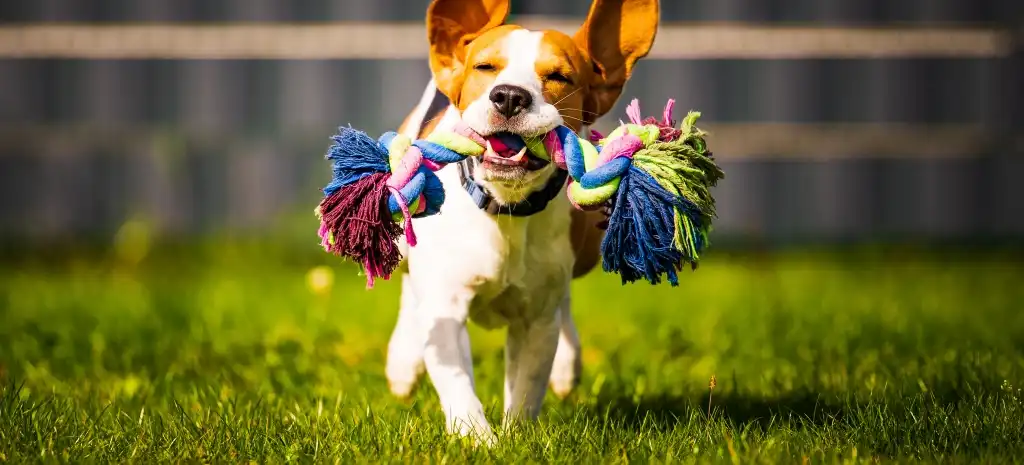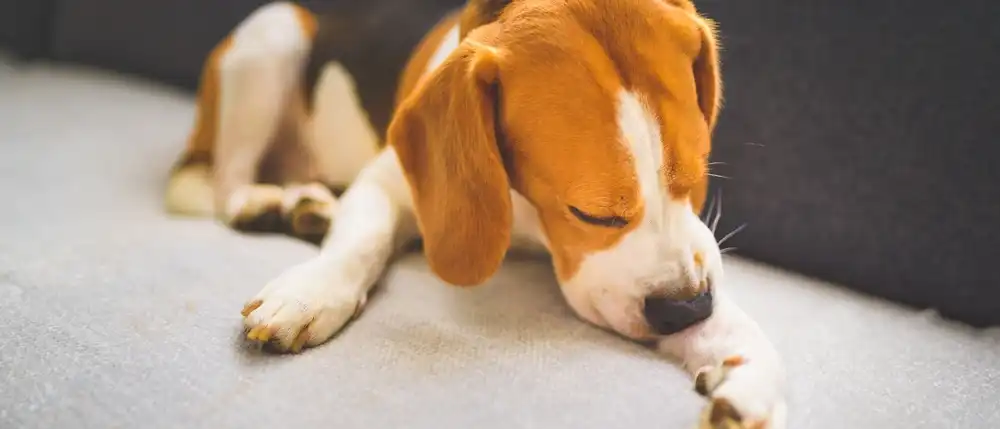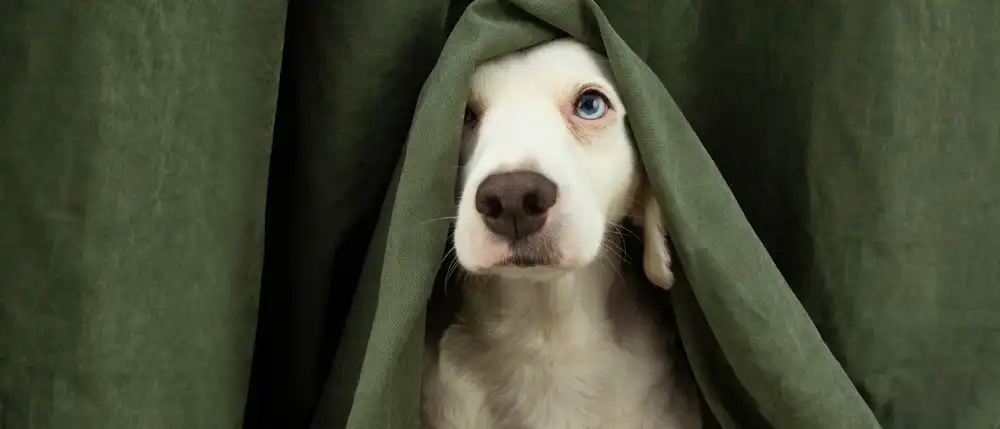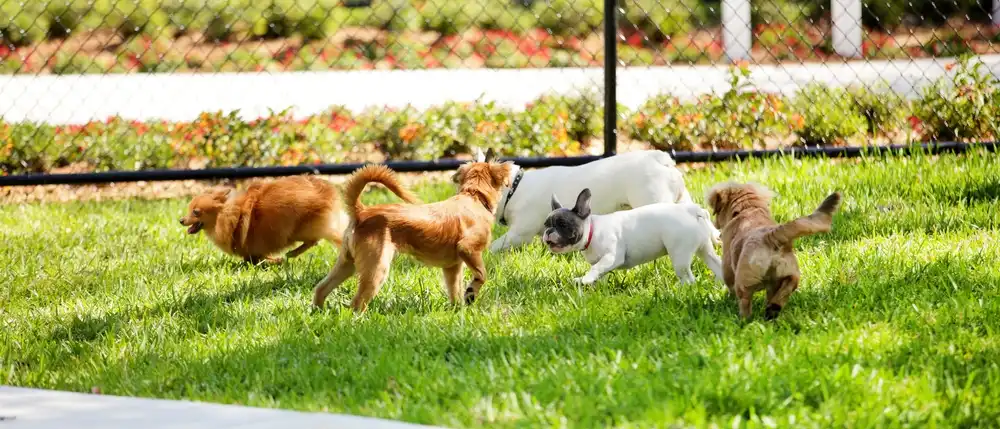Tailoring Dog Toys to Different Breeds

Introduction
When it comes to selecting toys for our canine companions, one size certainly does not fit all. Different dog breeds have distinct play needs and preferences, influenced by their unique characteristics and historical roles. Understanding these differences is crucial in choosing the right toys that not only provide entertainment but also cater to the physical, mental, and instinctual needs of our furry friends.
Every dog breed has unique traits and needs, shaped by their historical roles. It's important to choose toys that match these characteristics to keep your dog both happy and healthy.
Breed-Specific Traits and Toys
- Herding Breeds (like Border Collies): They enjoy toys that move, such as balls or frisbees, which cater to their natural chasing and herding instincts.
- Hunting Breeds (such as Beagles and Retrievers): These dogs have a strong prey drive. They prefer toys that engage their sense of smell or mimic prey movements, like hidden treat games or bouncy toys.
- Guarding Breeds (like German Shepherds): Intelligent and protective, these dogs enjoy mentally stimulating toys, like puzzles, which keep their minds active.
Why It Matters
Choosing the right toy is crucial for your dog's mental well-being and can prevent boredom-related issues. It also strengthens the bond between you and your pet by showing that you understand and cater to their natural behaviors and needs.
Toy Types and Their Appeal to Different Breeds
Selecting the perfect toy for your dog isn't just about what looks fun or durable. It's about understanding the different types of toys and how they align with your dog's breed characteristics. Let's dive into the world of dog toys and explore which types are best suited for different breeds.
Chew Toys
- Best for: Teething puppies, heavy chewers, and breeds with strong jaws like Bulldogs and Mastiffs.
- Why They're Great: Chew toys, especially durable ones, satisfy a dog's natural chewing instinct. They're essential for dental health and can keep dogs occupied for hours, preventing them from chewing on things they shouldn't.
Interactive Toys
- Best for: Energetic breeds, like Retrievers and Spaniels, and breeds that enjoy mental stimulation, such as Border Collies.
- Why They're Great: Interactive toys, like tug ropes and fetch toys, require participation from both the dog and the owner. They provide physical exercise and mental engagement, perfect for keeping active breeds entertained and strengthening the bond between pet and owner.
Puzzle Toys
- Best for: Intelligent breeds with a knack for problem-solving, such as German Shepherds, Poodles, and Terriers.
- Why They're Great: Puzzle toys challenge a dog's mind. They often involve hiding treats and require the dog to figure out how to retrieve them. These toys are excellent for stimulating a dog's brain and can keep them busy for a long time, especially when you're not home.
Wool Toys
- Best for: Gentle chewers and dogs who enjoy comfort, like Shih Tzus and Maltese.
- Why They're Great: Wool toys like the ones made by Modernbeast are often a favorite for dogs who like to cuddle or carry something soft in their mouths. They can provide comfort and a sense of security, especially for dogs that get anxious easily. Wool toys are great for soft chewers because the wool helps floss the pup's teeth as they nibble and chew on them, making them an ideal addition to your dog's dental regimen.
Squeaky and Movement Toys
- Best for: Hunting breeds and breeds with high prey drives, such as Beagles, Jack Russell Terriers, and Greyhounds.
- Why They're Great: These toys stimulate the hunting instincts. The squeaky sound and erratic movements of these toys can keep these breeds engaged for hours, satisfying their natural chasing and hunting behaviors.
Understanding the different types of toys and how they cater to specific breed characteristics is essential for keeping your dog happy, healthy, and engaged. By matching the right toy with your dog's natural inclinations, you're not only providing fun but also nurturing their inherent traits and behaviors.
Toy Recommendations for Popular Breeds
Choosing the right toy for your dog can be a game-changer in their playtime. Here are some tailored toy recommendations for three popular breeds, keeping their safety and size in mind.
Toys for Retrievers
- Water-Friendly Toys: Retrievers, like Labradors and Golden Retrievers, love water. Floating toys are perfect for swimming sessions.
- Fetch Toys: Durable balls and frisbees are great for these energetic dogs. Make sure they're size-appropriate to avoid choking hazards.
Toys for Terriers
- Digging Toys: Terriers have a natural instinct to dig. Toys that can be buried in the yard provide great mental and physical exercise.
- Tough Chew Toys: These small but feisty dogs need durable chew toys that can withstand their tenacious biting.
Avoid toys with small parts that can be chewed off and swallowed.
Toys for Herding Breeds
- Puzzle Toys: Breeds like Border Collies and Australian Shepherds are highly intelligent and benefit from the mental stimulation of puzzle toys.
- Toys That Move: Motion-activated toys are excellent for mimicking herding actions, providing both physical exercise and mental engagement.
Remember, safety is key. Always choose toys that are appropriate for your dog’s size and strength, and supervise playtime to ensure they’re playing safely.
Conclusion
In summary, selecting the right toys for your dog based on their breed's specific characteristics is not just about fun—it's about catering to their natural instincts and needs. Remember, each breed has unique preferences, and acknowledging these can significantly enhance your dog’s quality of life.
As a pet owner, being mindful of your dog's individual needs and preferences shows your care and understanding. The right toy can do more than just entertain; it can provide mental stimulation, physical exercise, and even comfort. This mindful approach to playtime strengthens the bond between you and your furry friend, creating a deeper connection and a happier, healthier life together.
In the end, the joy and well-being of your pet are what matter most. By choosing breed-specific toys, you're taking an important step in ensuring a fulfilling and joyful life for your beloved companion.
Recent Posts
-

OCD in Dogs and Cats: Causes and Genetic Involvement
-

Dog Breeds Predisposed to Noise Phobia
-

Unraveling the Correlation between Canine Genetics and Behavior